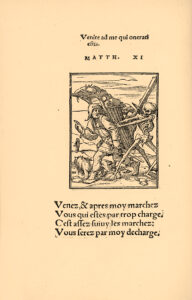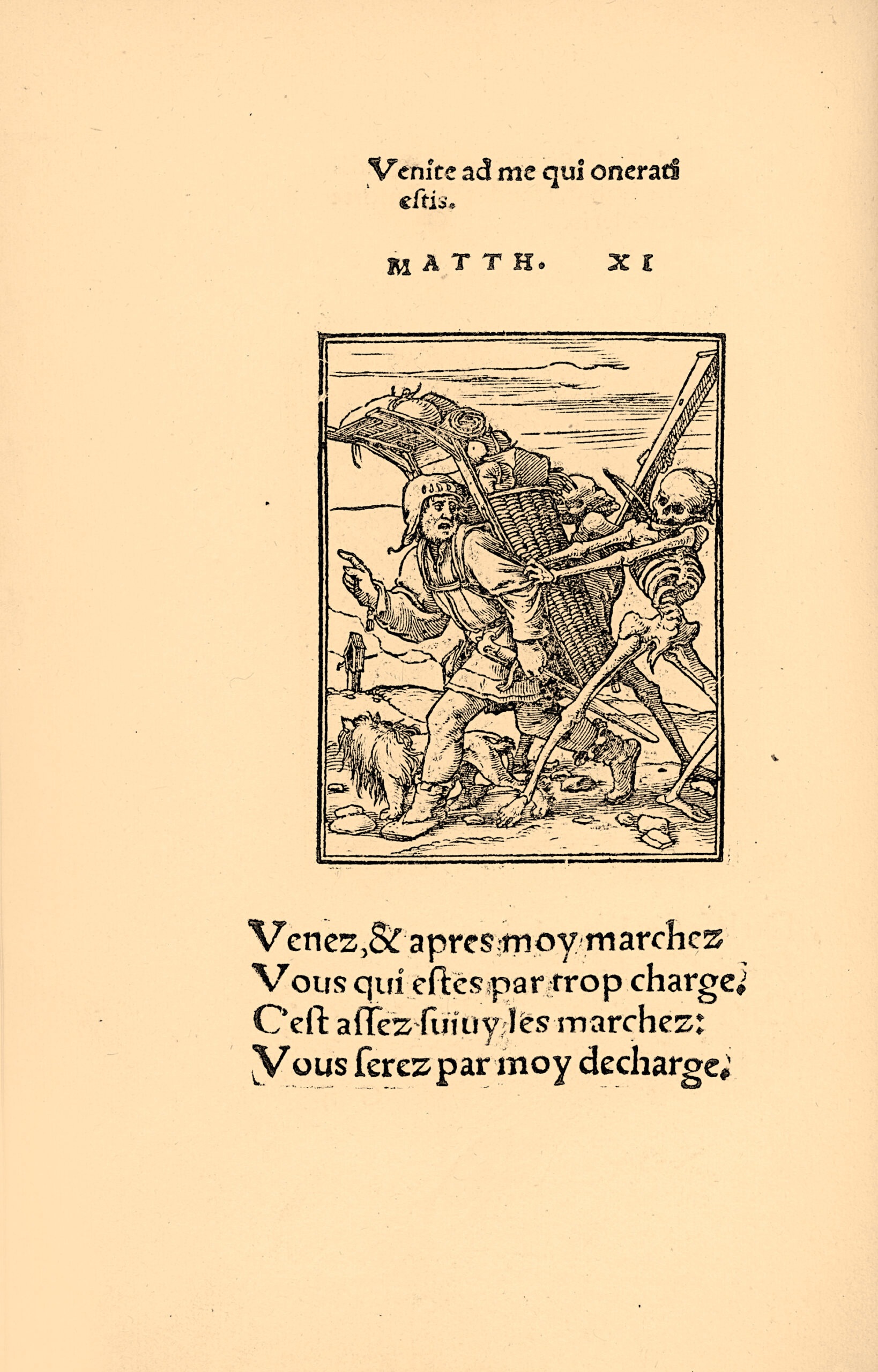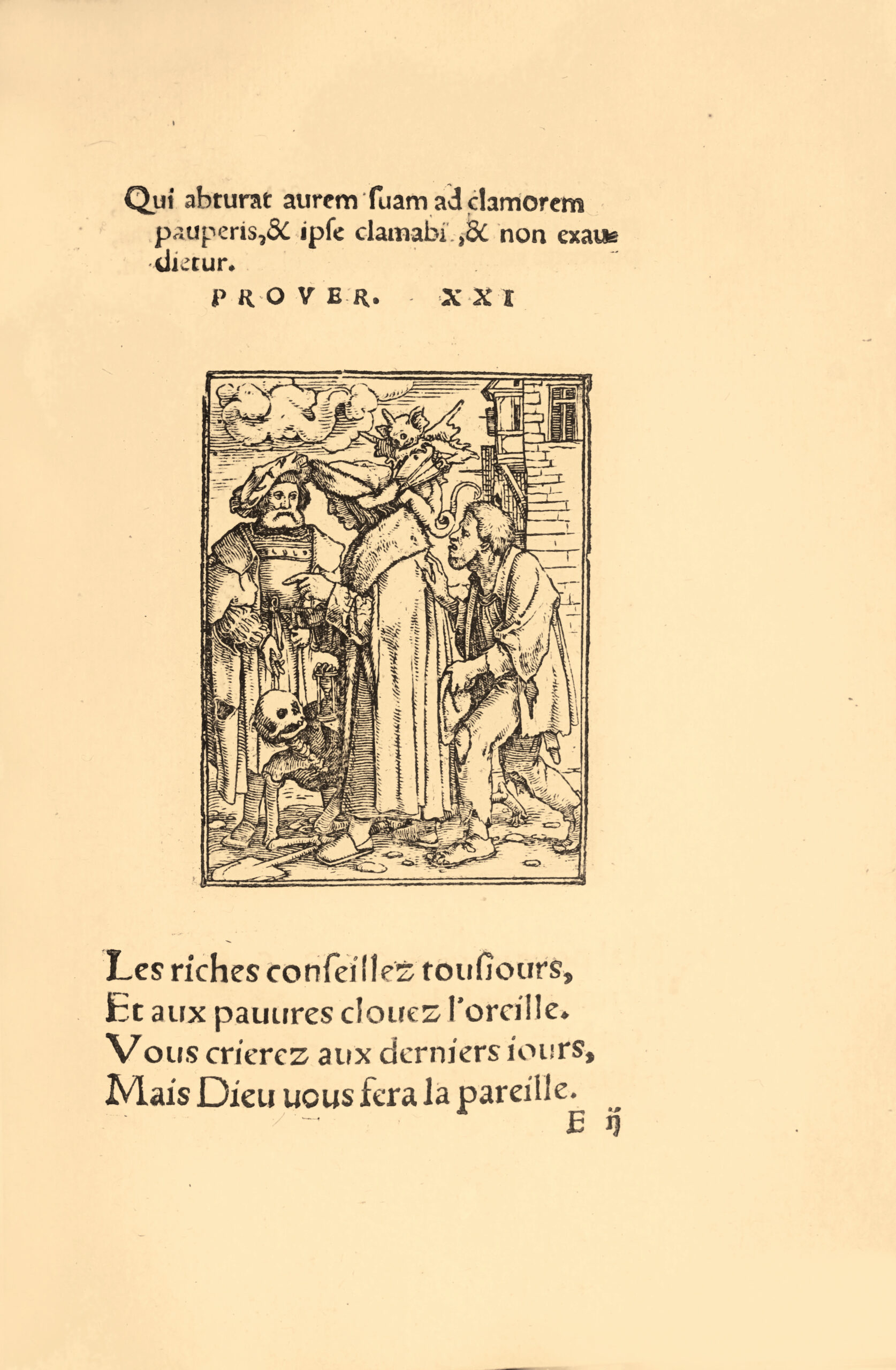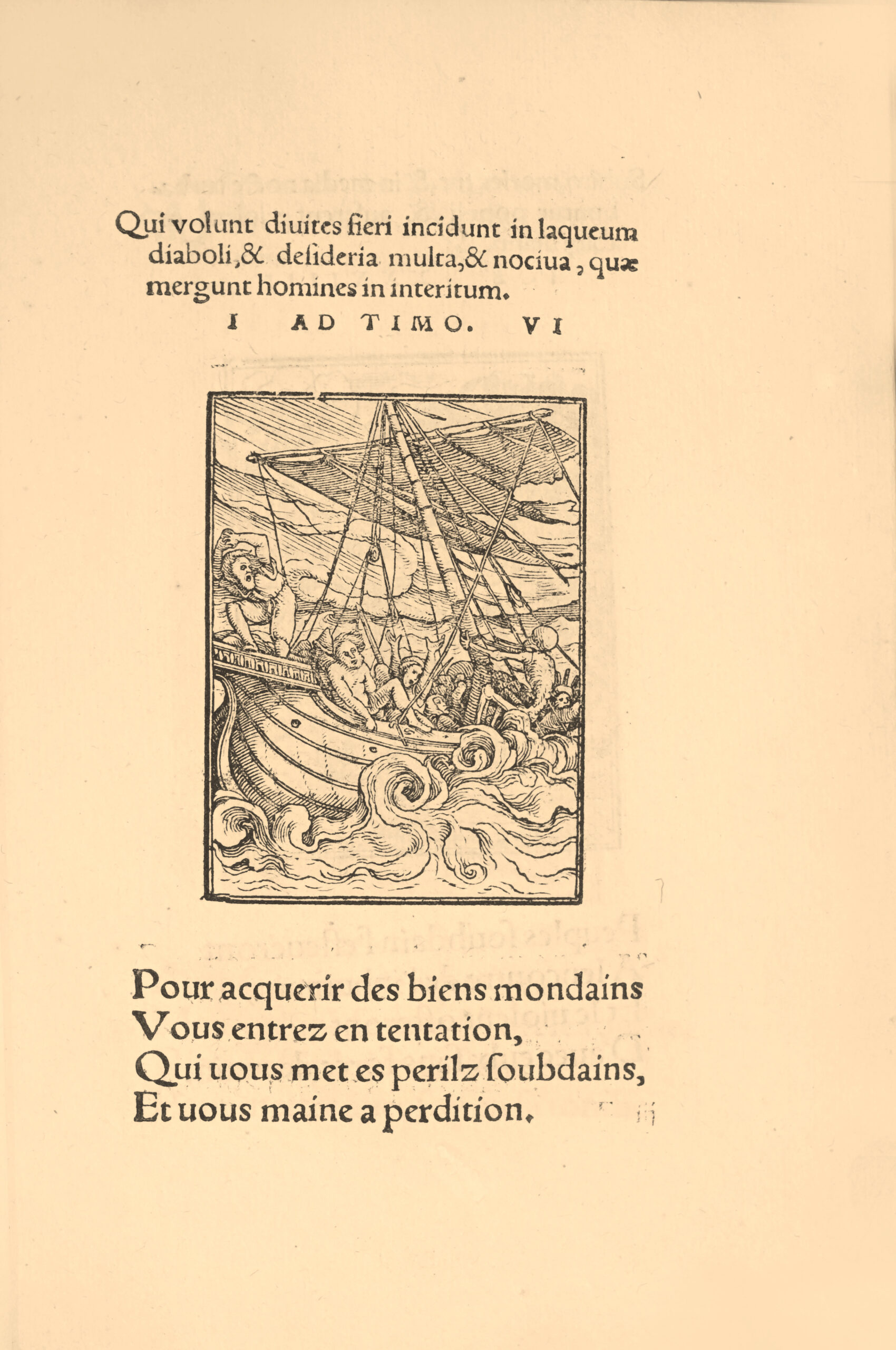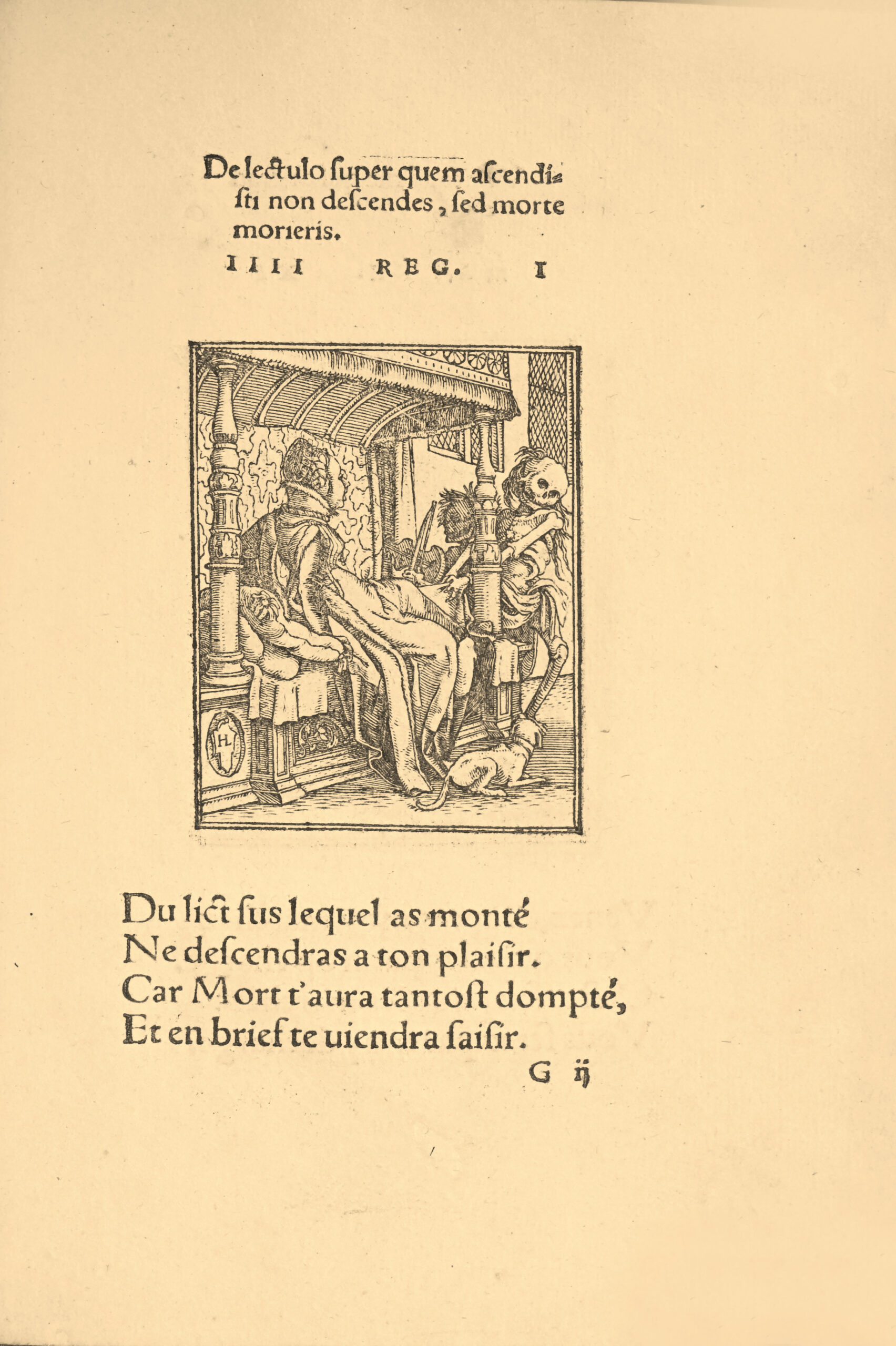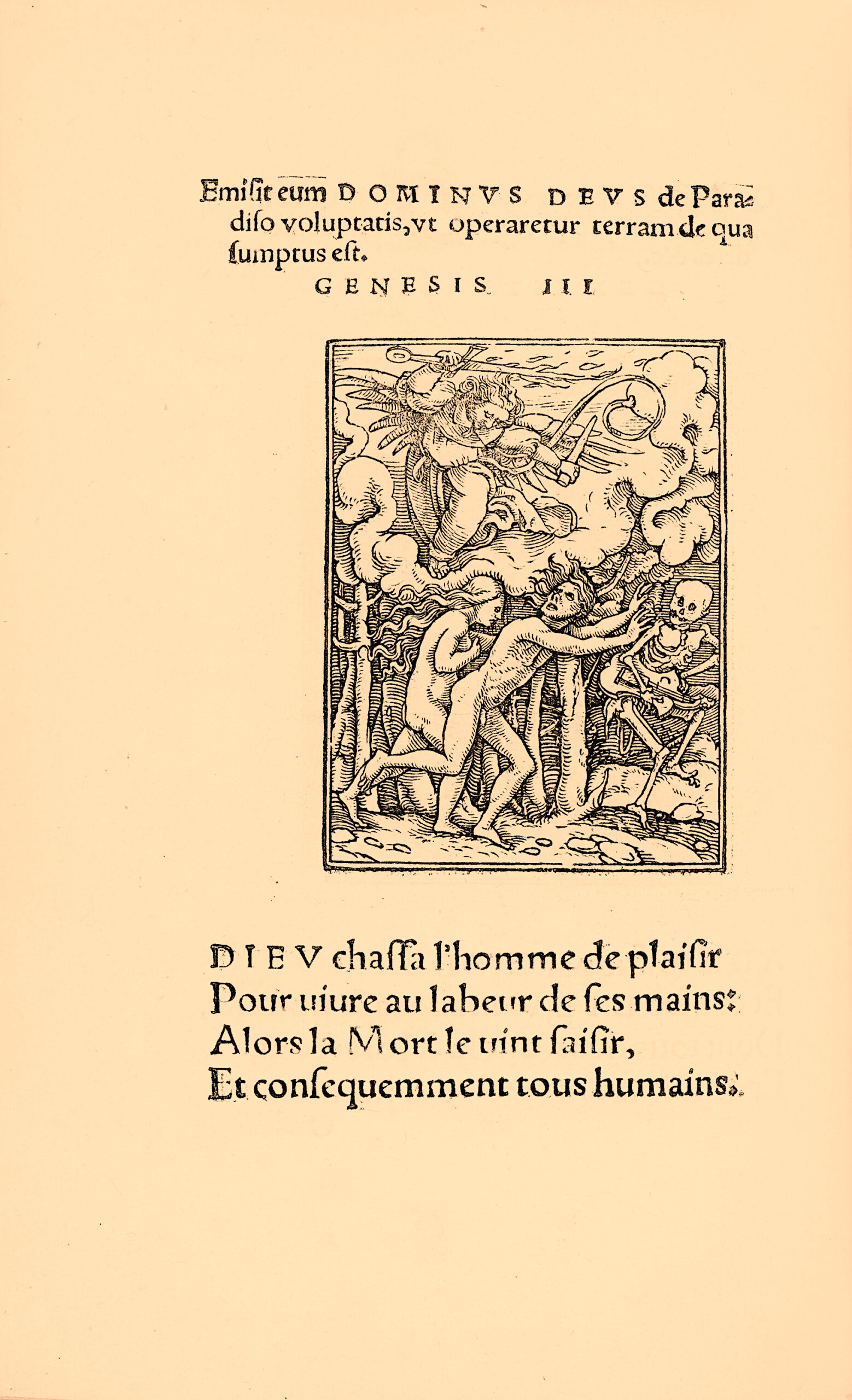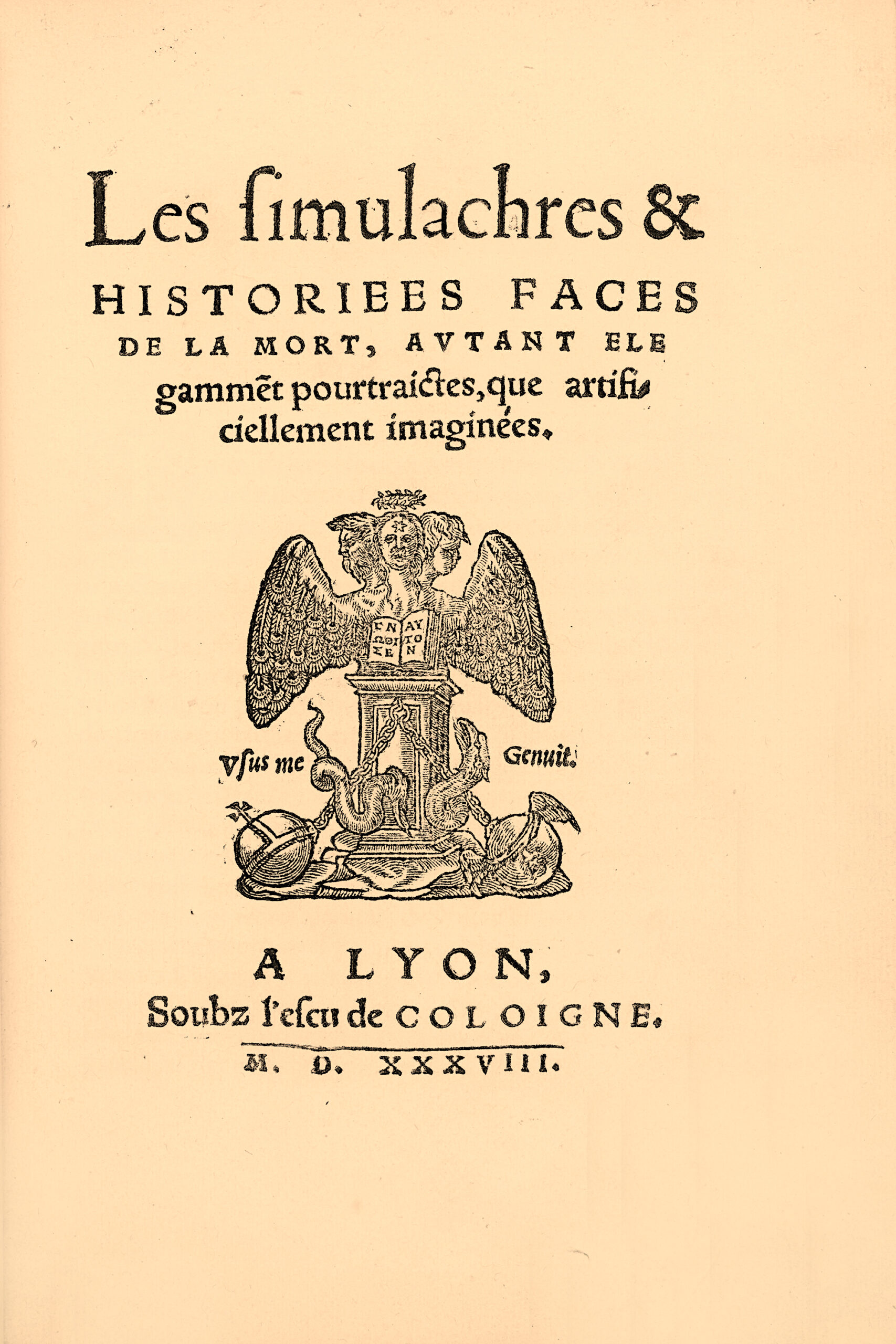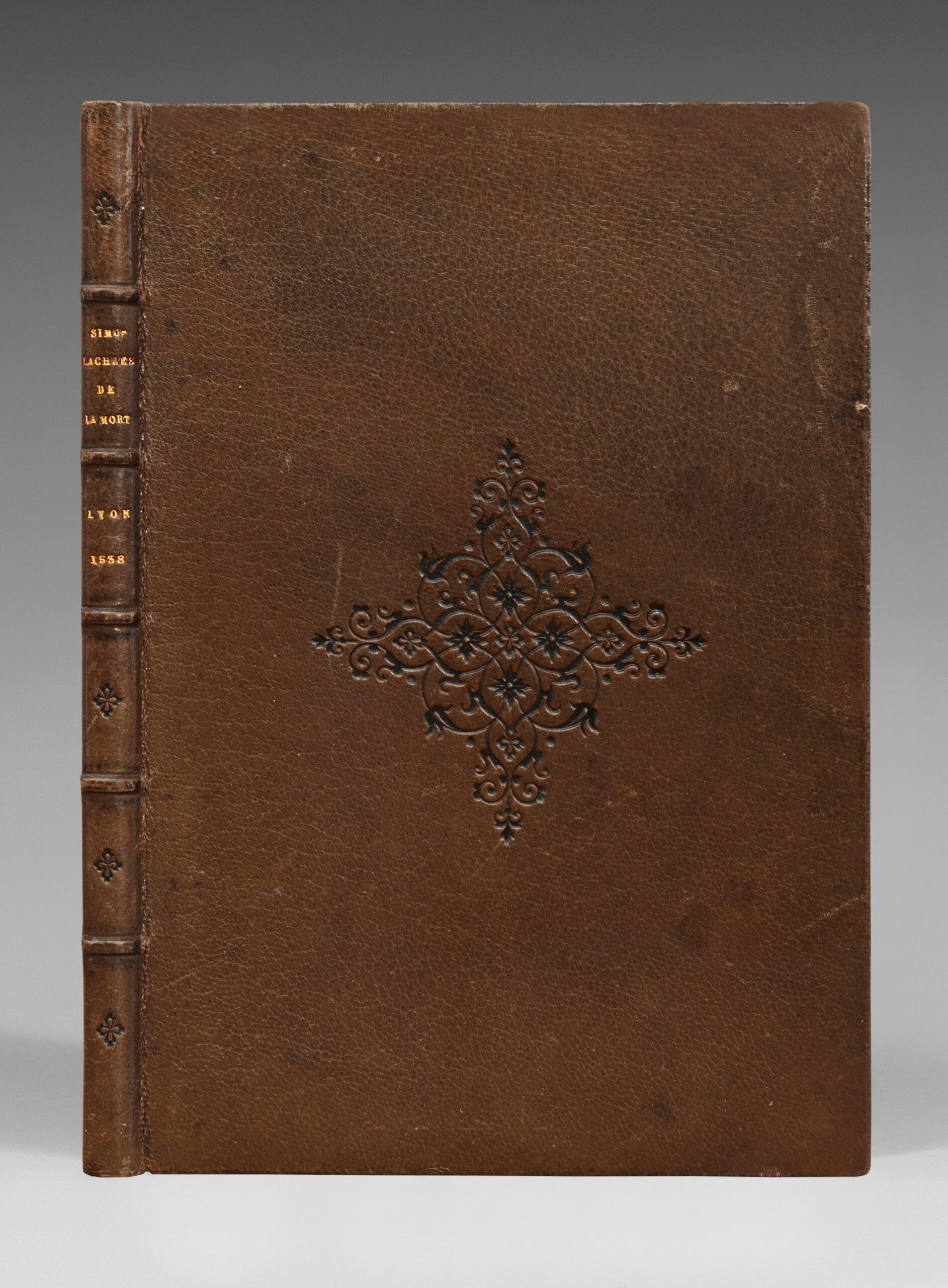Lyon, Melchior & Gaspar Trechsel, 1538.
Small 4to of (52) lêves, signed A-M4.
Full brown morocco, blind-stamped central fleuron, decorated ribbed spine, gilt inner border, gilt edges. Binding signed Trautz-Bauzonnet, circa 1865.
177 x 123 mm.
« Earliest known edition of this remarkable work with its most fascinating designs of exquisite finish » (Murray). Brunet, III, 254 ; Brun, Le livre français illustré de la Renaissance, p. 222 ; Mortimer 284 ; Murray 247 ; Massmann S. 8 ; Minns 213 ; Holbein-Kat. Basel 1960, nr. 418 ; Woltmann92-149 ; Hollstein XIVa, 202, 99 ; 247 ; Brunschwig, 428 ; Baudrier, V, 175 ; Rothschild, I, 15. ‘Suite of 41 compositions bêutifully engraved after Holbein's drawings. The monogram HL on l. 36 on the duchess's bed is by Hans Lützelbürger (plate XX)’. Brun. First edition of Holbein's Dance of Dêth, whose iconographic influence continues to the present day. « Holbein’s contribution to the traditional Dance of Dêth was a sharpening of the humor and satire and a heightening of the drama, so that the customary procession of figures becomes instêd under his hand a series of fully rêlized scenes » (Mortimer). Erste Druckausgabe von Holbeins Basler Totentanz. « Die Folge besteht aus 51 Bildern, von denen 41 beim Tode Lützelburgers, vor Johannistag 1526, vollendet waren und in der Ausgabe von 1538 erschienen. Melchior Trechsel hatte die Stöcke direkt bei Lützelburger bestellt und am Johannistag 1526 bezogen ; nach Aussage des Vorworts von 1538 getraute man sich nicht, die restlichen Stöcke schneiden zu lassen » (Holbein-Kat.). (First printed edition of Holbein's Basel Dance of the Dêd. ‘The suite consists of 51 images, 41 of which were completed at Lützelburger's dêth, before Midsummer 1526, and which were published in the 1538 edition...). Very rare first issue of this remarkable and famous suite of The Dance of the Dêd, imagined by Holbein and ‘which’ according to the bibliographers ‘must be ranked among the most bêutiful books ever published’. This very precious dance of the dêd comprises 41 prints engraved by Hanz Lützelburger, based on drawings by Hans Holbein. The monogram H signs the engraving of the Duchess. In 1536 the brilliant artist was chosen as one of Henri VIII's painters. In 1538 Holbein left for Belgium and then visited Lyon. This trip coincided with the first publication in that city, by Gaspar and Melchior Trechsel, of ‘Simulacres et Historiées faces de la mort’. The 41 woodcuts that adorn the volume had been printed in Basel as êrly as 1530, but had never been brought together in a collection. Holbein's Basel collaborator, Hans Lùtzelburger, executed here the engravings from his master's drawings (see his monogram ‘HL’ on f. 36). The first series of these chilling yet humorous images gives grêt importance to what was to become one of the most famous illustrated books of the Renaissance. Holbein's last known work was a drawing dated 1543, the yêr in which the grêt artist was struck down by a plague epidemic. The absolutely remarkable iconography bêrs witness to Holbein's genius, in the originality, expression and rêlism of the scenes evoking the different classes of society, as well as in the extreme finesse of the drawing. ‘The wonderful pictures of his most facinating designs of exquisite finish’ were the source of inspiration for many later artists. Each of the engravings is laid out under an extract of 3 Latin lines from the Bible and is accompanied by a quatrain in French. All classes of society are represented in this masterly production, with its fascinating rêlism. The work was so successful that 12 editions were published between 1538 and 1562.
The quatrains and epistle in French are attributed to Jên de Vauzelles or Gilles Corrozet. The widest copy (height: 177 mm) recorded on the market for several decades. Provenance: the copy comes from the famous library of the entrepreneur, philanthropist and bibliophile Charles William Dyson Perrins (1864-1958); Sam Josefowitz, Pully - then by descent to the present owners.
See less information
| Holbein's Dance of Dêth | |
| 1- Crêtion 2- Temptation 3- Expulsion from Paradise 4- Adam tilling the soil 5- The bones of all the dêd 6- The Pope 7- The emperor 8- The king 9- The cardinal 10- The empress 11- The queen 12- The bishop 13- The Duke 14- The abbot 15- The abbess 16- The nobleman 17- Canon 18- Judge 19- Lawyer 20- Senator 21- Prêcher | 22- The priest 23- The monk 24- The nun 25- The old lady 26- The doctor 27- The astrologer 28- The rich man 29- The merchant 30- The navigator 31- The knight 32- The count 33- The old man 34- The countess 35- The noblewoman 36- The duchess 37- The travelling salesman 38- The farmer 39- The child 40- The Last Judgement 41- The crest of Dêth |
